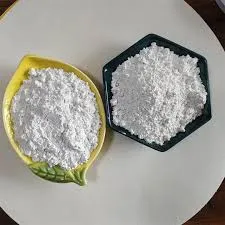- Afrikaans
- Albanian
- Amharic
- Arabic
- Armenian
- Azerbaijani
- Basque
- Belarusian
- Bengali
- Bosnian
- Bulgarian
- Catalan
- Cebuano
- Corsican
- Croatian
- Czech
- Danish
- Dutch
- English
- Esperanto
- Estonian
- Finnish
- French
- Frisian
- Galician
- Georgian
- German
- Greek
- Gujarati
- Haitian Creole
- hausa
- hawaiian
- Hebrew
- Hindi
- Miao
- Hungarian
- Icelandic
- igbo
- Indonesian
- irish
- Italian
- Japanese
- Javanese
- Kannada
- kazakh
- Khmer
- Rwandese
- Korean
- Kurdish
- Kyrgyz
- Lao
- Latin
- Latvian
- Lithuanian
- Luxembourgish
- Macedonian
- Malgashi
- Malay
- Malayalam
- Maltese
- Maori
- Marathi
- Mongolian
- Myanmar
- Nepali
- Norwegian
- Norwegian
- Occitan
- Pashto
- Persian
- Polish
- Portuguese
- Punjabi
- Romanian
- Russian
- Samoan
- Scottish Gaelic
- Serbian
- Sesotho
- Shona
- Sindhi
- Sinhala
- Slovak
- Slovenian
- Somali
- Spanish
- Sundanese
- Swahili
- Swedish
- Tagalog
- Tajik
- Tamil
- Tatar
- Telugu
- Thai
- Turkish
- Turkmen
- Ukrainian
- Urdu
- Uighur
- Uzbek
- Vietnamese
- Welsh
- Bantu
- Yiddish
- Yoruba
- Zulu
10 月 . 31, 2024 01:20 Back to list
importance of minerals in animal nutrition
The Importance of Minerals in Animal Nutrition
Minerals play a crucial role in the health and productivity of animals, making them a fundamental component of animal nutrition. These inorganic elements are vital for a variety of physiological functions, including growth, reproduction, and overall health. Understanding the importance of minerals can significantly improve the management of livestock and pets, ultimately enhancing their well-being and productivity.
Firstly, minerals contribute to various biochemical processes within the body. They are essential for the formation of bones and teeth, as calcium and phosphorus are major components of skeletal structure. A deficiency in these minerals can lead to issues such as osteomalacia or rickets in young animals, resulting in weakened bones and an increased risk of fractures. Furthermore, minerals like magnesium and manganese play critical roles in enzymatic reactions necessary for energy production and metabolic processes.
In addition to structural roles, minerals are involved in maintaining fluid balance and acid-base equilibrium. Sodium, potassium, and chloride are key electrolytes that help regulate osmotic pressure and pH levels in the body. This balance is essential for proper hydration and nutrient transport, and disturbances can lead to serious health issues such as dehydration or metabolic alkalosis. Ensuring adequate mineral intake, especially during periods of stress or high production, is vital for maintaining optimal health.
Moreover, minerals are integral to the immune system. Trace elements like zinc, selenium, and copper are vital for the proper functioning of immune cells. They aid in the development of antibodies and help combat oxidative stress, enhancing the animal's ability to fend off diseases. A deficiency in these trace minerals can lead to increased susceptibility to infections and chronic health issues, ultimately impacting the productivity and longevity of livestock.
importance of minerals in animal nutrition

Moreover, minerals facilitate various reproductive processes in animals. For example, adequate levels of zinc are critical for spermatogenesis in males and the overall reproductive health of females. Furthermore, calcium and magnesium are important during pregnancy and lactation, influencing milk production and quality. Ensuring that breeding animals receive sufficient mineral supplementation is essential for successful reproduction and ensuring the health of offspring.
In agricultural settings, the mineral content of animal feed can significantly influence growth rates and feed efficiency. Livestock with optimal mineral nutrition tend to exhibit better growth performance, resulting in increased weight gain and improved feed conversion ratios. This efficiency not only benefits the producer economically but also contributes to sustainability by reducing the environmental impact of livestock production.
Finally, it is essential to recognize that the mineral requirements of animals can vary based on species, age, sex, and production stages. Therefore, regular assessment of mineral levels in diets is essential for maintaining animal health. Through balanced nutrition that includes both macro and trace minerals, farmers and pet owners can ensure that their animals thrive, thereby enhancing their productivity and overall quality of life.
In conclusion, minerals are indispensable in animal nutrition, influencing various bodily functions crucial for health, productivity, and reproductive success. By understanding and addressing the mineral needs of animals, we can foster healthier livestock and pets, promoting better outcomes in animal husbandry and enhancing food security.
-
The Power of Radix Isatidis Extract for Your Health and Wellness
NewsOct.29,2024
-
Neomycin Sulfate Soluble Powder: A Versatile Solution for Pet Health
NewsOct.29,2024
-
Lincomycin Hydrochloride Soluble Powder – The Essential Solution
NewsOct.29,2024
-
Garamycin Gentamicin Sulfate for Effective Infection Control
NewsOct.29,2024
-
Doxycycline Hyclate Soluble Powder: Your Antibiotic Needs
NewsOct.29,2024
-
Tilmicosin Premix: The Ultimate Solution for Poultry Health
NewsOct.29,2024













